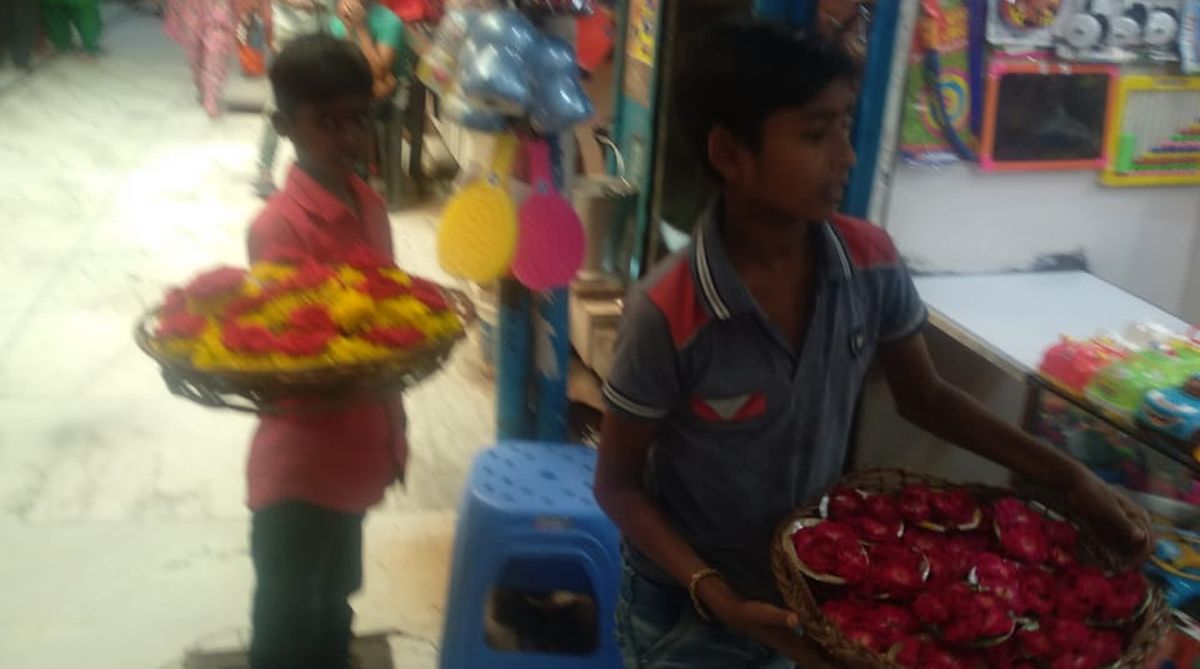Tea Board sets 2025 plucking and making timeline
Tea Board of India has announced that tea plucking and manufacturing for the 2025 cropping season will commence only after winter dormancy ends, allowing tea bushes to sprout fresh buds.
Many children of migrant labourers at Chintpurni temple shun school to earn a little amount to support their poor parents.

“I will become a daily wager,” said eight-year-old boy, Lachhu outside the famous Chintpurni temple in Una district of Himachal Pradesh.
Lachhu couldn’t think of more, given the circumstances he is growing in. He sells flowers to devotees, who visit the temple in huge numbers every day, and his dreams are grounded at tender age.
Advertisement
He does not go to school an supports the family economy — with his poor and illiterate parents, who hail from a village in Punjab, thriving on paltry commission that they get in lieu of facilitating pilgrims book rooms in local hotels and sarais.
Advertisement
But Lachhu is not the only such child, who presents a picture of apathy in area around Chintpurni temple, which is richest in the state in terms of offerings, with its last year’s cash offerings reportedly touching Rs 35 crore (excluding gold and silver coin).
One can see a number of children (roughly aged 5-15) of migrant workers, mostly from Rajasthan, Uttar Pradesh, Bihar and some from adjoining Punjab, selling flowers or other small pooja items to devotees around the temple to financially aid their parents at the cost of their own future. Most of them have either not gone to the school at all, or are drop-outs.
This includes some children beggars, and a whole lot of little girls, who are made to stay in temple complex by their families for ‘Kanya Poojan’, which most of the pilgrims from Punjab perform there and which earns them some easy bucks every day.
The spirit of Beti Bachao Beti Padhao campaign of the government seems limited to big hoardings here, which display pictures of girls from Una doing it big in their career. And the Right to Education (RTE) probably holds no meaning here.
“I don’t go to school as I don’t have an Adhaar card,” shared a 10-year-old boy, who too sells flowers. He refused to divulge his identity, fearing oft repeated repercussions — as these children, particularly boys, are often shooed away by local shopkeepers and sometimes by security men for reasons unknown.
A large number of VIPs from the state and outside visit the temple throughout the year, but they have not paid any heed to the plight of these poor kids..
“I have noticed that there are over 100 such children and many of them are girls, who find ‘Kanya Poojan’ by devotees from Punjab in the temple a lucrative occupation as they get money.
The temple administration should take care of education of poor children in a way that their economy (that runs on faith) is also not affected,” said Anoop Rattan, former Additional Advocate General and a resident of Chintpurni area. Rattan said HP Hindu Public Religious Institutions and Charitable Endowments Act does provide for expenditure on education.
Deputy Commissioner, Una, Rakesh Kumar Prajapati, when contacted, expressed concern over the problem and said he would personally look into the issue. “We will see, what can be done for education of these children,” Prajapati told The Statesman.
Advertisement